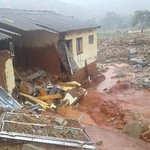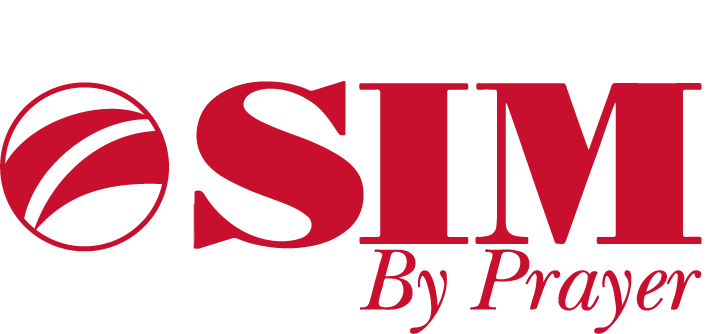Ebola survivors find new hope in trauma healing
By John Stuart | Liberia in West Africa

Nancy Writebol remembers the exact moment her husband David told her she had the Ebola Virus Disease. It was July 26, 2014. SIM's ELWA Hospital in Monrovia was one of the few medical centers that had begun treating Ebola patients as they started trickling in toward the beginning of June that year. But what started as a trickle became a torrent and ELWA Hospital Ebola Treatment Unit would go on to treat scores of patients throughout the epidemic. However, Nancy's role as a hygienist had her out of direct contact with patients, so her diagnosis came as a shock.
That July morning, when Nancy woke up in her home on the ELWA campus, she knew something was wrong.
"For several days I had been having a fever and headache," Nancy said. "After being tested for malaria the results were positive and I stayed at home to rest, but later the test came back negative for malaria so they tested me for Ebola. That evening was when David received the news that my test for Ebola was positive. Neither of us was suspecting Ebola."
Nancy was one of three Americans to contract Ebola in 2014 at ELWA Hospital, during the height of the epidemic in Liberia. A caring and unassuming hygienist at ELWA Hospital, she had no idea the spotlight would be shone on her and David in the months after her diagnosis. To her and others serving at the hospital throughout the epidemic, they were simply doing their jobs.
Nancy's story was documented internationally: her evacuation to the US for care in a custom-built treatment unit in Emory University Hospital, Atlanta; her miraculous recovery and her eventual release from hospital on Aug 19, 2014. On that day she held her husband's hand - it was their first physical contact in 24 days.
As Nancy and David recovered from their ordeal at home, the epidemic raged on in West Africa. Despite what they had been through, their hearts remained thousands of miles away where their Liberian brothers and sisters were fighting for their lives.
Two years later
Nancy sits quietly in a Liberian conference room, only a few miles from where she first contracted Ebola. She and fellow counselors are with a group of Ebola survivors. They patiently listen as each one recounts a painful story of grief. In the quiet room there is another powerful, tangible force at work. There is hope, as these hearts are mended more and more each week. Nancy knows exactly what these survivors are going through. She knows this is where she is meant to be.
Every Ebola survivor is grieving. Each one has lost close family members and friends to the disease. Even those who survived did so amid a backdrop of loss. As medical staff began treating the physical needs of the Ebola survivors, it became clear there were deep emotional wounds too.
The devastating toll wrought by Ebola came on top of many years of civil war, violence and social problems in Liberia.
When new patients enter the clinic, Nancy and her fellow counselors give them time to tell their stories. They ask each one three questions: What happened? How did you feel? What was hardest part for you?
For many, it is the first opportunity they've had to tell their story. Many weep about things from years ago, grieving for a life that no longer exists.
How do you carry on when you are the lone survivor in a family of 25? Or when you lost your fiance, your baby, your parents and six of your seven sisters? How do you pick up the pieces when you lost your wife and four sons, and people in your community accuse you of deliberately killing them with the disease?
These are some of the questions survivors are asking. There are countless more. These are the stories Nancy and others in the Trauma Healing groups are listening to and seeking God's help to heal. Every Ebola survivor who comes to ELWA Hospital is invited to attend a free Trauma Healing course and many accept.
The Trauma Healing groups use a modified version of the Healing the Wounds of Trauma curriculum offered by the American Bible Society. The sessions emphasize scripture and prayer as a means of healing.
"I always explain to patients beforehand that we use the Bible in our trauma healing groups," Nancy said. "It's amazing to me the number of people from other faiths who still come to the sessions and find healing. It's always such a blessing to see a difference in their countenance when they finish the group."
In July 2015, ECOL and SIM personnel trained 80 people to run the trauma healing groups. They are now helping spread healing groups across the capital, Monrovia, and further into Liberia. In May, leaders have been trained to run trauma healing groups specifically for children.
"Our goal is to care for those who suffer severe wounds of the heart and spirit in the aftermath of Ebola, conflict, disaster or abuse," Nancy said.
Nancy isn't sure why God wanted her to get Ebola. But when patients learn she has experienced exactly what they have, there's an immediate connection.
"I really believe that the Lord has used my getting Ebola," Nancy said. "It's given us an ability to speak into people's lives and to groups like National Institutes of Health and The Centers for Disease Control. We have relationships we would not have, had this not happened."
Counseling Liberia's Ebola Erasers
Every week, Nancy and fellow counselors talk with a group of about 20 Liberian men who have been rejected by society. During their meetings, there is often an air of tension, of extreme grief, unresolved angst and addiction. The men were given the gruesome job of cremating the contagious bodies of Ebola victims - a vital task that directly reduced the spread of the disease throughout the epidemic.
But, after incinerating thousands of bodies, they were uniformly shunned. Cremation is anathema in Liberian culture, which cherishes post-mortem rituals with intact bodies before a traditional burial.
Many of these men, dubbed "Ebola Erasers," lost their communities, families and livelihoods as a result of their vital job during the Ebola crisis. Some have since fallen into drug use, alcoholism and poverty.
ECOL and SIM leaders first learned about these men from Ebola survivors. In January 2016, ECOL reached out to all 35, inviting them to a special lunch to honor their service and thank them. ECOL, in partnership with SIM, also invited them to a Trauma Healing course.
"We are asking the Lord to heal the wounds of their hearts and the pain that they have gone through," Nancy said. "They have experienced some huge grief. Many of them do not know the Lord. Many resorted to alcohol and drugs.
"Our prayer is that they will be able to release that and come to know the Lord and not see themselves as victims, but be able to hold their heads high."
ELWA Survivor's Clinic
In the first months of 2015 ELWA Hospital started to notice a worrying trend. Patients who had survived Ebola began trickling back in. Months had passed since the disease left their bodies, but significant medical conditions persisted: aches and pains, eye trouble, joint pain and abdominal ailments. Looking for answers, SIM consulted international medical experts. Throughout 2015 medical specialists converged on Monrovia to train and equip practitioners in treating Ebola survivors. It was the first time this kind of care had been given on a large scale worldwide.
Through key partnerships with SIM, these specialists have trained numerous Liberian medical personnel to offer vital treatment for the scores of Ebola survivors. SIM missionaries have played a major role in advising Liberian and international medical organizations in the care and treatment of Ebola survivors worldwide.
Related stories

Uruguay immigrants are putting down New Roots Duplicate 1
Uruguay has a large immigrant population, and students from the vocational programme at the Biblical Seminary of Uruguay, a partner of SIM, realised many foreigners were finding it difficult to adjust to their new home. New Roots ministry was formed to assist these newcomers!
Zimbabwe new stories 2 only en-gb es
Short Summary
Zimbabwe new stories
short summary

